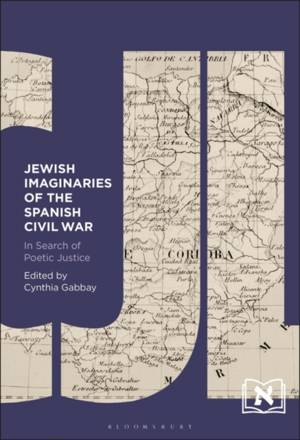
- Afhalen na 1 uur in een winkel met voorraad
- Gratis thuislevering in België vanaf € 30
- Ruim aanbod met 7 miljoen producten
- Afhalen na 1 uur in een winkel met voorraad
- Gratis thuislevering in België vanaf € 30
- Ruim aanbod met 7 miljoen producten
Jewish Imaginaries of the Spanish Civil War
In Search of Poetic Justice
Omschrijving
Jewish Imaginaries of the Spanish Civil War inaugurates a new field of research in literary and Jewish studies at the intersection of Jewish history and the internationalist cultural phenomenon emerging from the Spanish Civil War (1936-1939), the Republican exile, and the Shoah. With the Spanish Civil War as a point of departure, this volume proposes a definition of Jewish textualities based on the entanglement of multiple poetic modes. Through the examination of a variety of narrative fiction and non-fiction, memoir, poetry, epistles, journalism, and music in Yiddish, Spanish, French, German, and English, these essays unveil non-canonic authors across the West and explore these works in the context of antisemitism, orientalism, and philo-Sephardism, among other cultural phenomena.
Jewish writings from the war have much to tell about the encounter between old traditions and new experimentations, framed by urgency, migration, and messianic hope. They offer perspectives on memorial and post-memorial literatures triggered by transhistorical imagination, and many were written against the grain of canonic literature, where subtle forms of dissidence, manifested through language, structure, sound, and thought, sought to tune with the anti-fascist fight. This book revindicates the polyglossia of Jewish cultures and literatures in the context of genocide and epistemicide and proposes to remember the cultural phenomena produced by the Spanish Civil War, demanding a new understanding of the cosmopolitan imaginaries in Jewish literature.Specificaties
Betrokkenen
- Uitgeverij:
Inhoud
- Aantal bladzijden:
- 272
- Taal:
- Engels
- Reeks:
Eigenschappen
- Productcode (EAN):
- 9781501379420
- Verschijningsdatum:
- 6/10/2022
- Uitvoering:
- Hardcover
- Formaat:
- Genaaid
- Afmetingen:
- 152 mm x 229 mm
- Gewicht:
- 517 g

Alleen bij Standaard Boekhandel
Beoordelingen
We publiceren alleen reviews die voldoen aan de voorwaarden voor reviews. Bekijk onze voorwaarden voor reviews.







